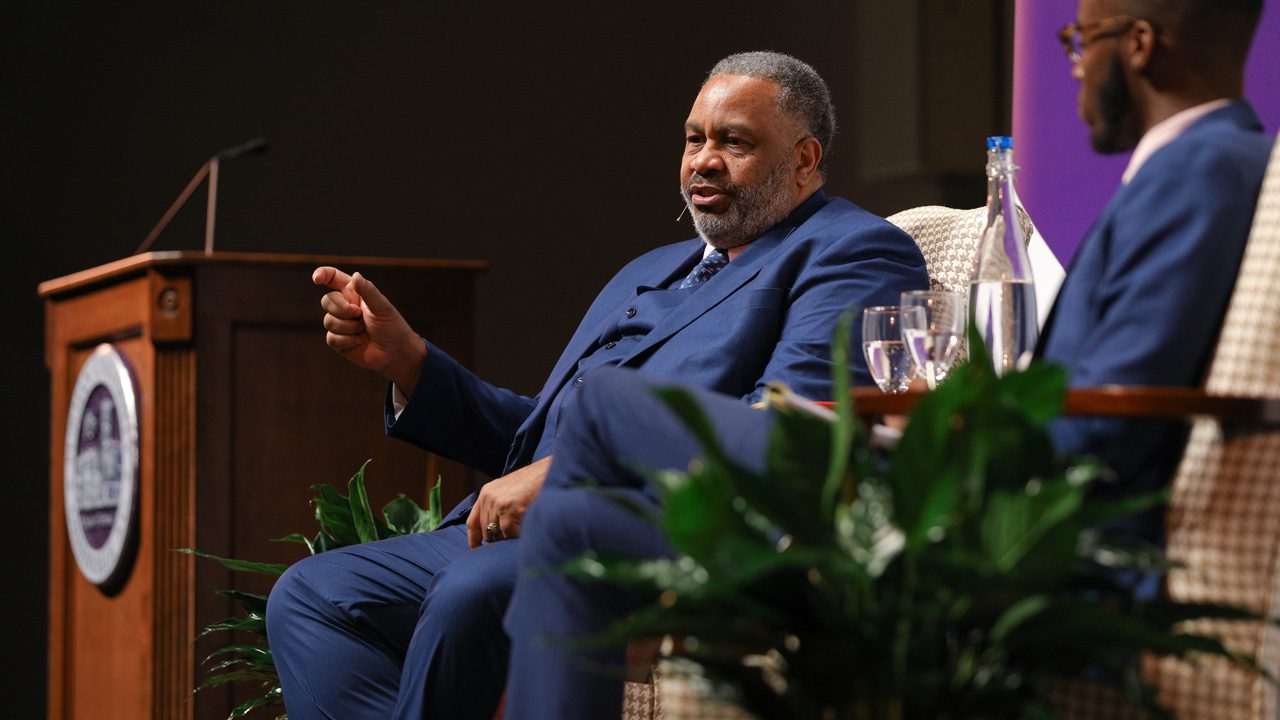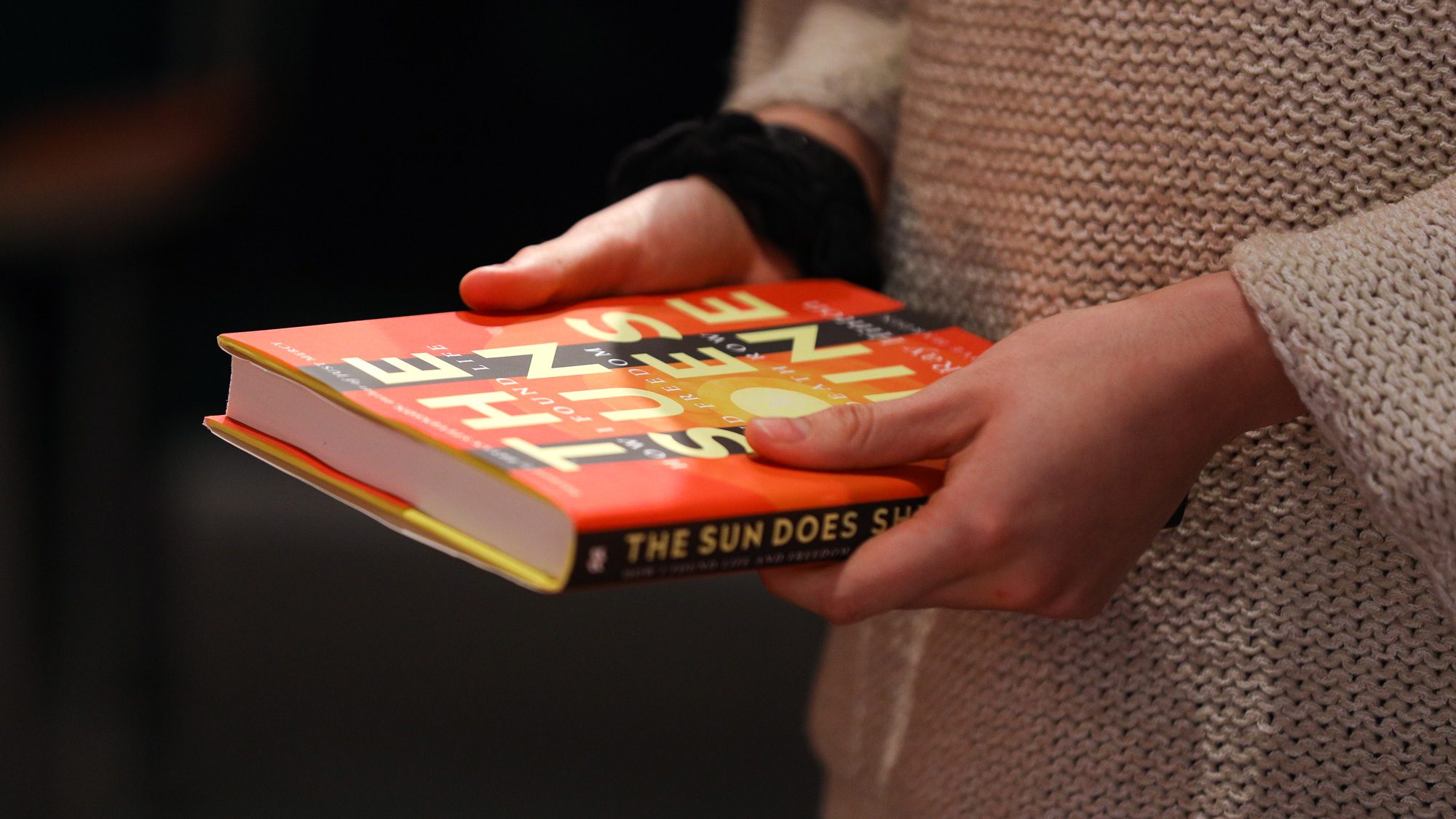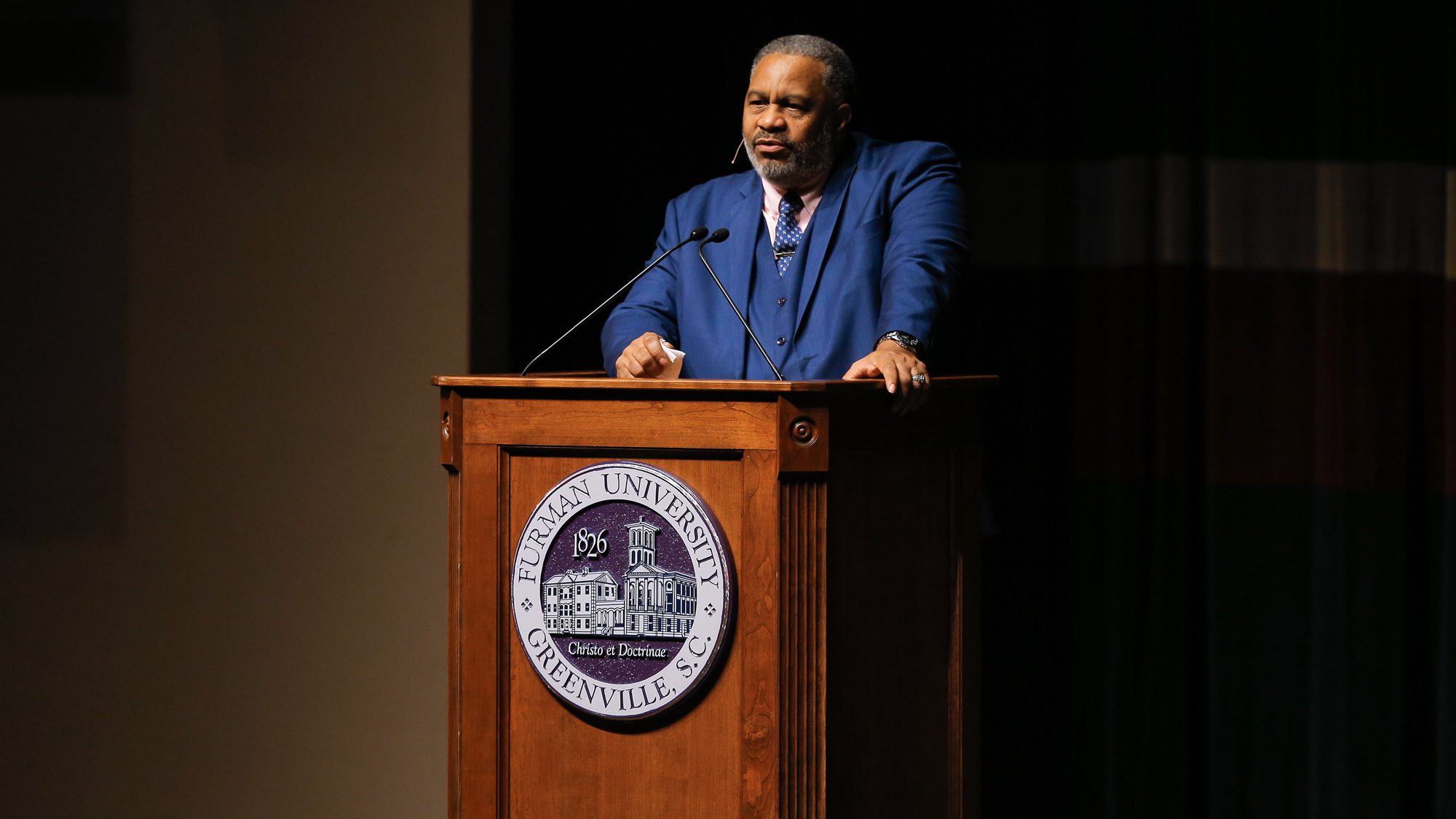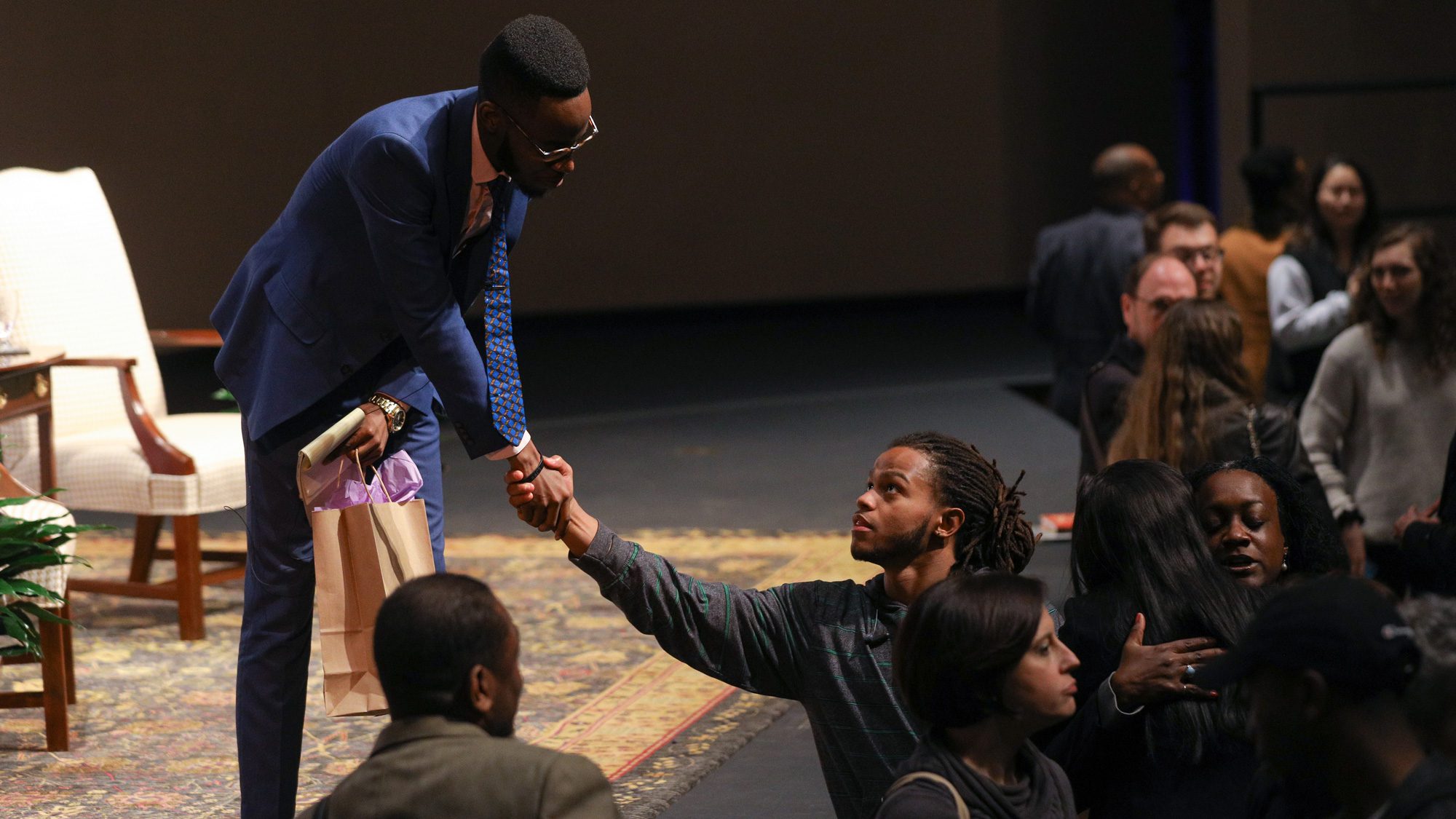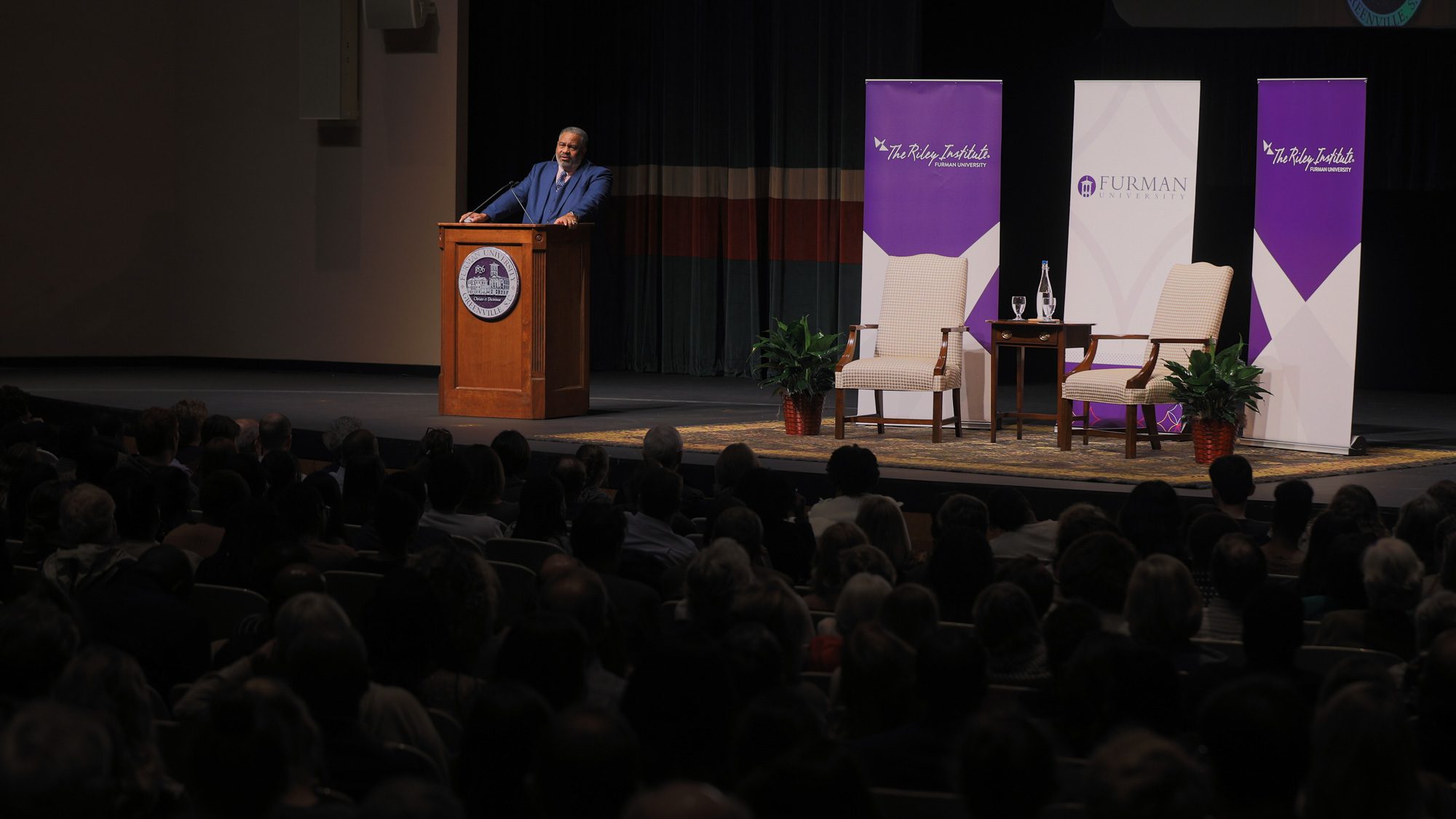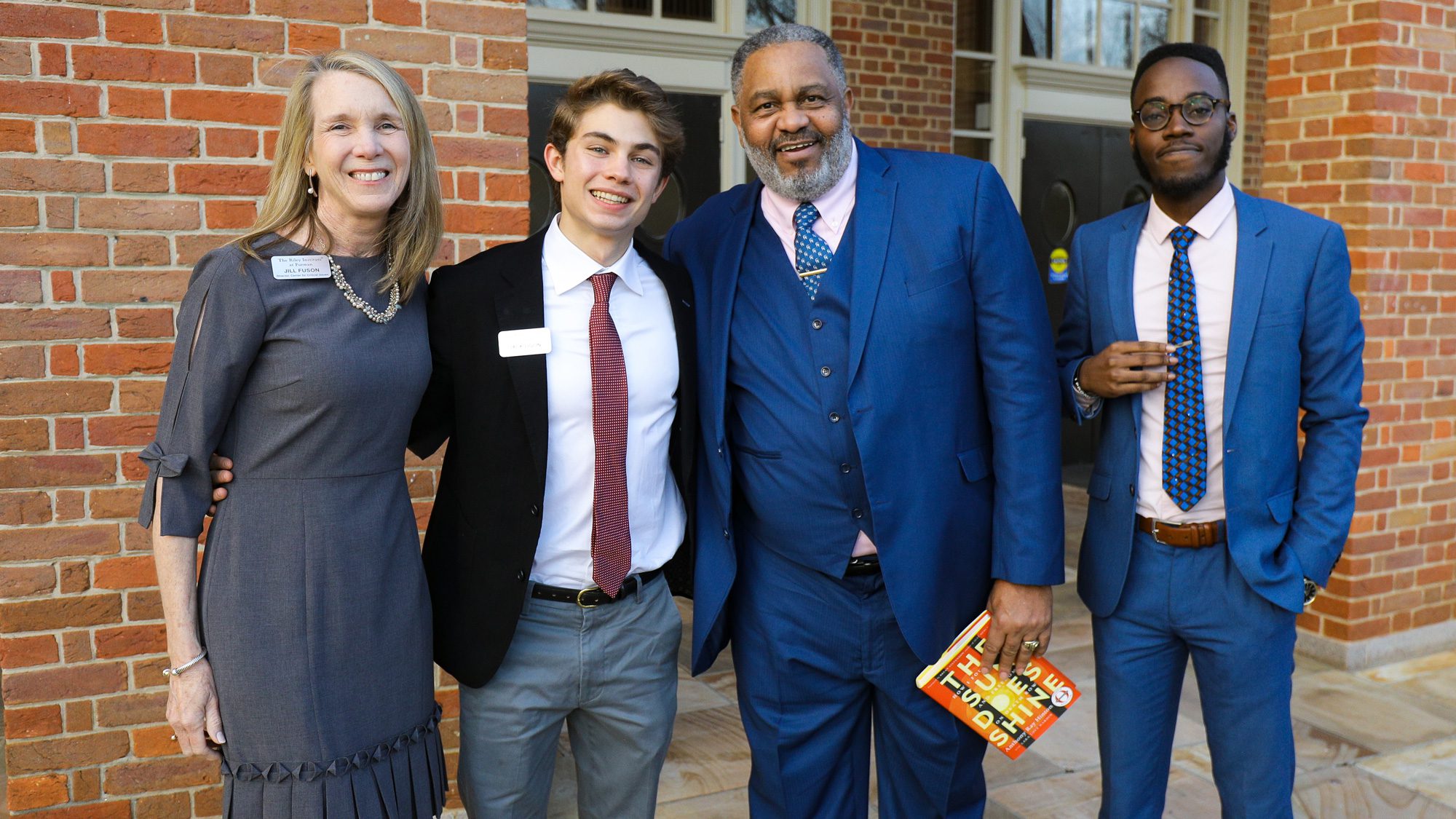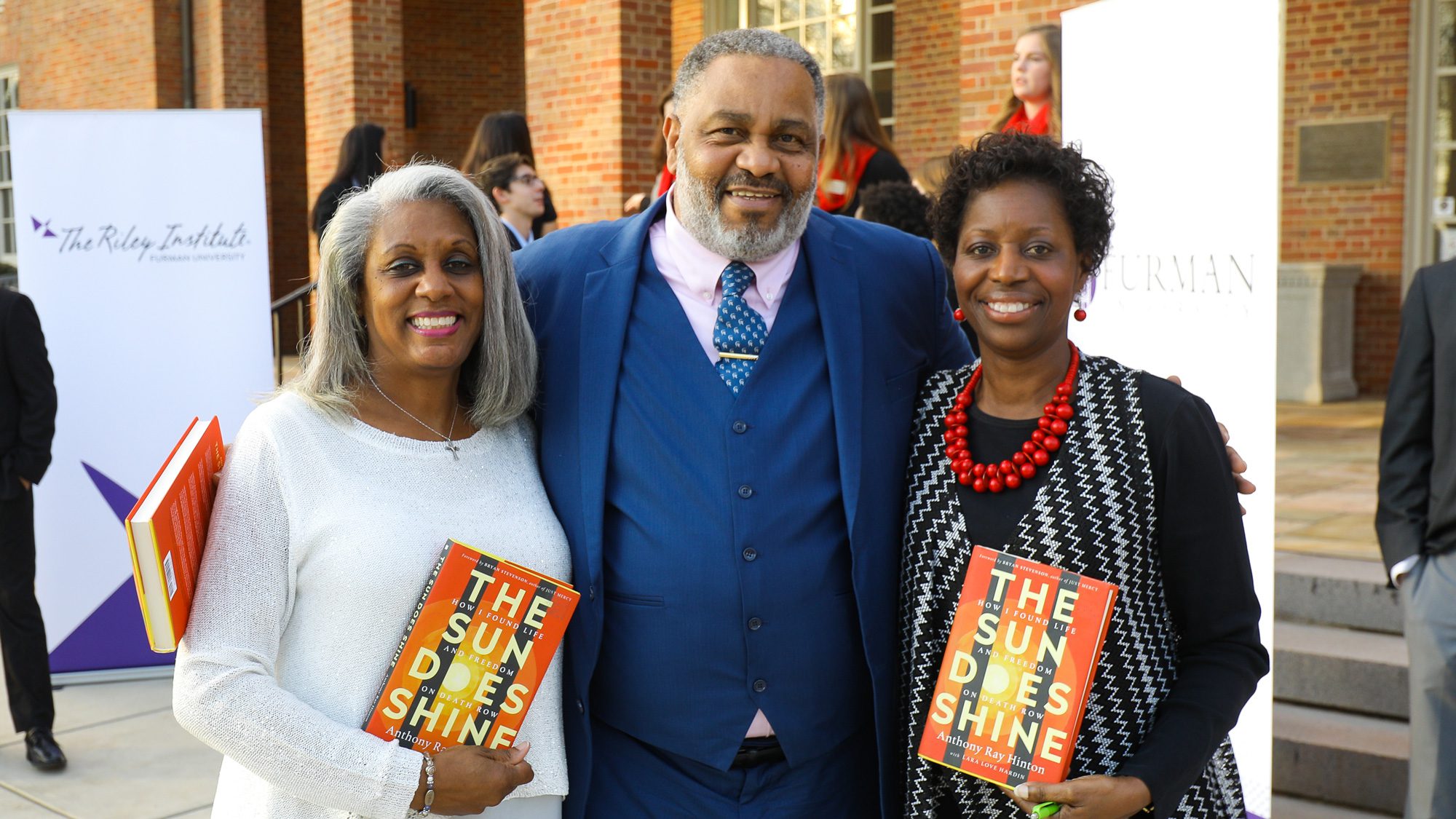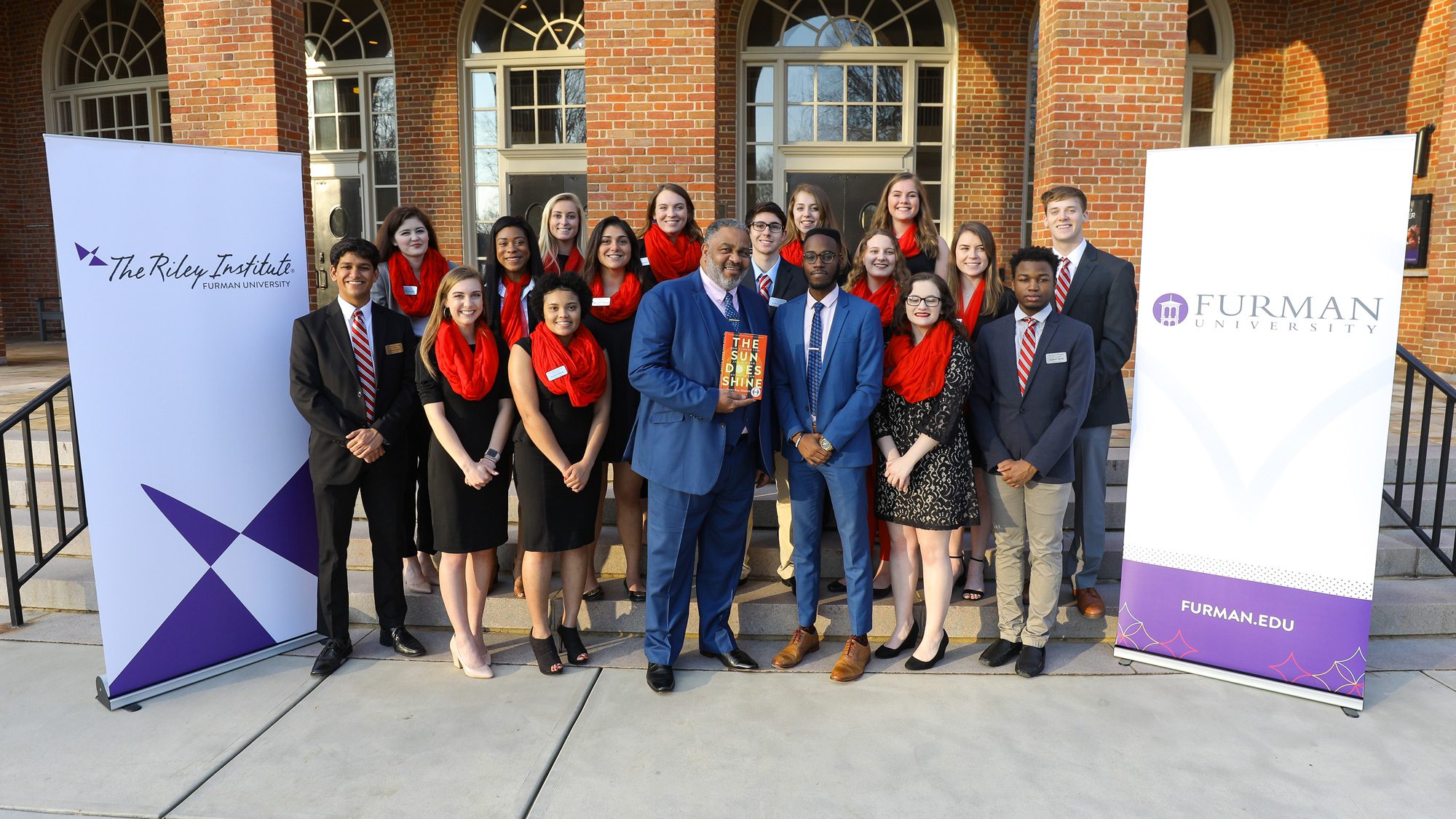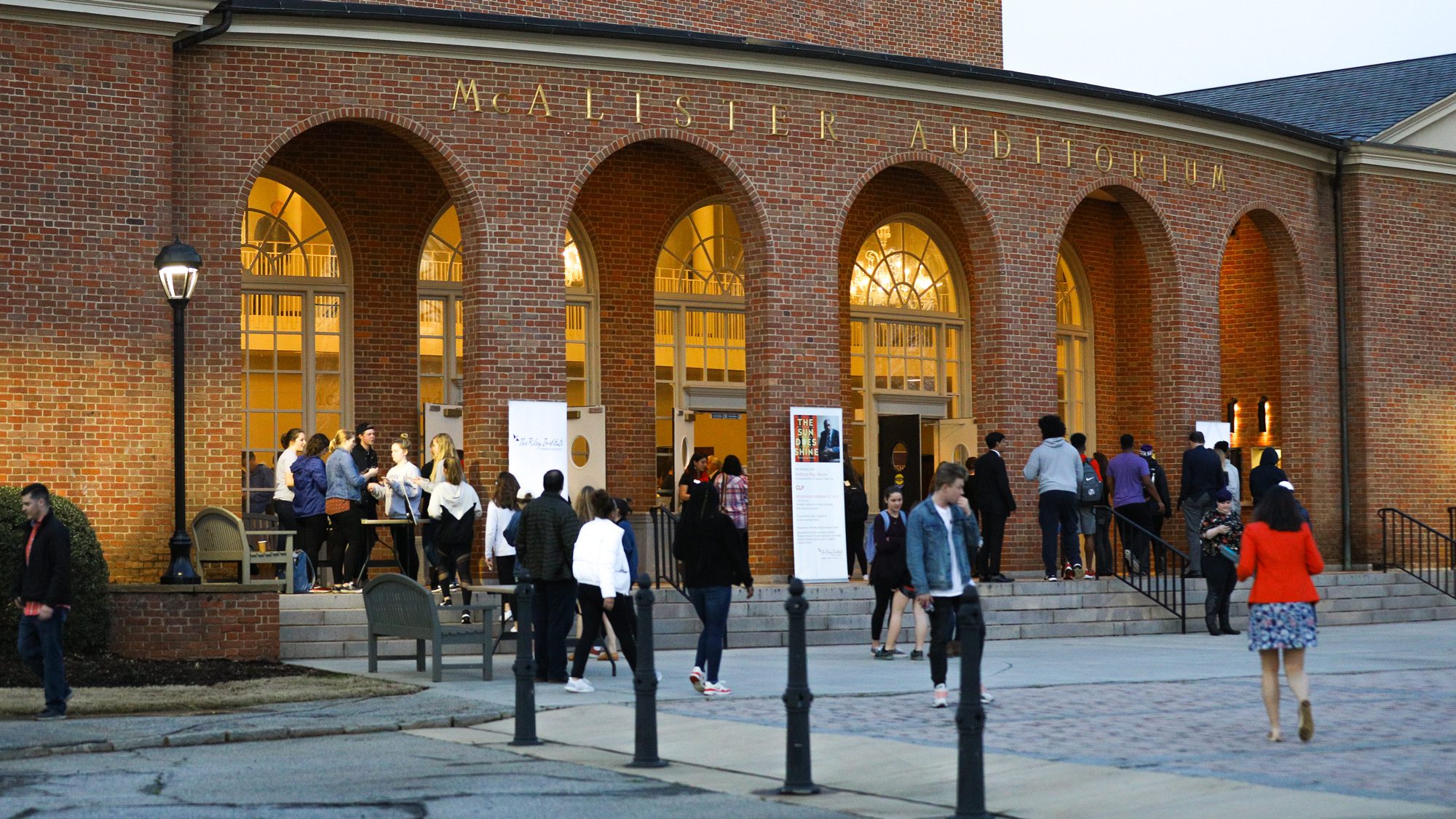American Politics and Policy
The Sun Does Shine:
How I Found Life and Freedom on Death Row
Anthony Ray Hinton — Exonerated after 30 years on death row
Wednesday, February 27, 2019
7 – 8:30 p.m.
McAlister Auditorium, Furman University
Presented by the Riley Institute Advance Team
Sponsored by: Furman University NAACP, Furman University Religious Council, Furman University Poverty Awareness Committee, Furman University Student Diversity Council, and St. Joseph’s Catholic School
Anthony Ray Hinton’s words kept a capacity crowd of more than 1,700 in Furman’s McAlister Auditorium spellbound for more than an hour Wednesday night. His words failed him, however, when he was asked earlier in the day about walking out of an Alabama prison in 2015 after nearly three decades on death row.
“There is no feeling like being free,” Hinton said after a pause. “I spent 30 years in a 5-by-7-foot cell. You cannot find the words to say how it felt.”
Hinton was clear, however, about the anger he feels toward a criminal justice system that convicted and sentenced him to death for a pair of 1985 murders he didn’t commit. For the complete article penned by Ron Wagner ’93, Senior Writer, click here. A book signing by Mr. Hinton followed the event.
About Anthony Ray Hinton
Anthony Ray Hinton spent thirty years on death row for a crime he did not commit. Wrongly convicted in the state of Alabama for two capital murders with erroneous evidence and inadequate representation, Hinton was eventually exonerated after more than a decade of litigation by the Equal Justice Initiative (EJI) on his behalf.
Hinton now travels across the world speaking about his experience and serves as the EJI’s community educator. Most recently, Hinton has authored a memoir, The Sun Does Shine: How I Found Life and Freedom on Death Row, which Oprah Winfrey selected as her Book Club Summer 2018 Read.
Ray Hinton is the 152nd person exonerated from death row since 1983. According to a review of nearly 2,000 exonerations nationwide over three decades, black people convicted of murder or sexual assault are significantly more likely than their white counterparts to be later found innocent. Released in 2017 by the National Registry of Exonerations, the review also found that innocent blacks also had to wait disproportionately longer for their names to be cleared than whites.
The Riley Institute Advance Team was honored to host Ray Hinton as he shared
his powerful, inspirational story. To read about other events the Advance Team has hosted, click here.
